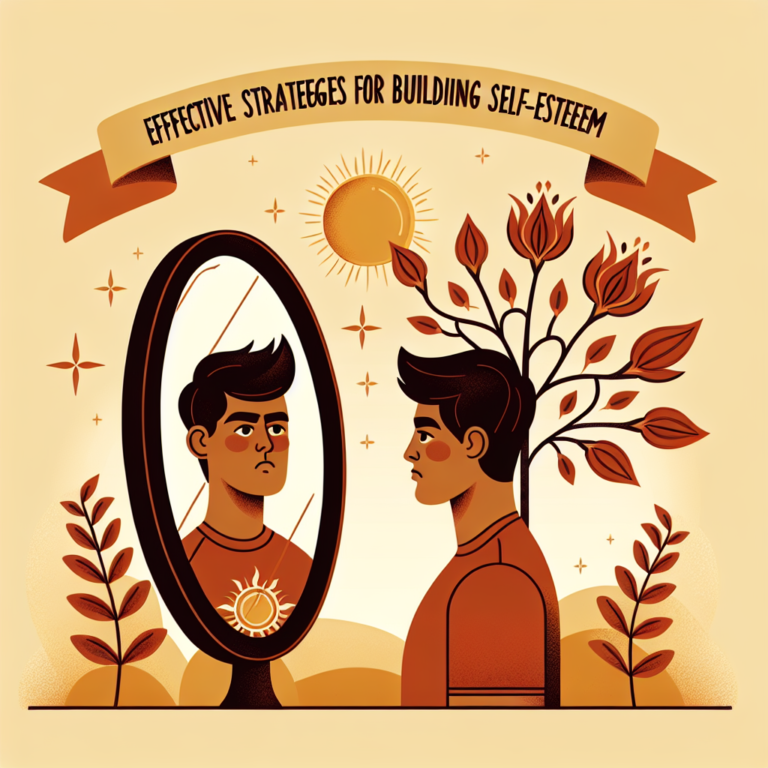Wake Up to Wellness: How Prioritizing Sleep Can Transform Your Mental Health
Introduction
In our fast-paced world, where deadlines loom and demands swell, the crucial role of sleep often gets overshadowed by the urgency of daily tasks. Yet, the truth is that sleep isn’t merely a period of rest; it’s a fundamental pillar for mental health. The phrase "Wake Up to Wellness: How Prioritizing Sleep Can Transform Your Mental Health" encapsulates this vital relationship perfectly. If you’ve ever felt down, anxious, or stressed, chances are your sleep quality played a part in that emotional turmoil. Let’s embark on a journey to explore how prioritizing sleep can catalyze transformative changes in your mental wellness.
The Science of Sleep and Mental Health
Before diving into the transformative power of sleep, it’s essential to understand its biological significance. According to the CDC, adults typically require 7 or more hours of sleep for optimal health. Sleep facilitates critical processes that forge connections in the brain, manages stress, and decreases symptoms of anxiety and depression.
Key Sleep Stages and Mental Health
Sleep is not a uniform state; it consists of various stages, each serving distinct functions:
- Light Sleep: Essential for mental restoration and cognitive functioning.
- Deep Sleep: Crucial for physical recovery and hormone regulation.
- REM Sleep: Associated with dreaming, this phase strengthens memories and emotional processing.
Understanding these stages reinforces why sleep cannot be sacrificed, especially when combating mental health challenges.
Case Study: The Impact of Sleep on Anxiety
Consider the case of Emily, a 32-year-old marketing executive who struggled with crippling anxiety. During a particularly busy quarter at work, she started to prioritize work over sleep, often sacrificing her nightly rest for project deadlines. Over time, her anxiety escalated, leading to tensions in personal relationships and a decline in work performance.
After seeking professional help, Emily learned about the importance of sleep in managing her anxiety. She committed to a sleep schedule, utilized relaxation techniques, and noticed her anxiety symptoms significantly decrease. This transformation illustrates how prioritizing mental health can initiate a positive feedback loop, enhancing sleep quality and overall stability.
Why Sleep Matters: The Psychological Impact
The relationship between sleep and mental health is multifaceted. Here’s a deeper dive into how sleep affects psychological well-being:
- Cognitive Function: Poor sleep can impair critical thinking, problem-solving, and emotional regulation.
- Mood Regulation: Sleep deprivation can lead to irritability and mood swings, exacerbating mental health disorders.
- Stress Response: Adequate sleep helps manage stress hormones like cortisol, preventing heightened stress responses.
Practical Steps to Improve Sleep Quality
To "Wake Up to Wellness," it’s crucial to adopt practices that enhance sleep quality. Below are effective strategies you can implement:
1. Establish a Consistent Sleep Schedule
Going to bed and waking up at the same time daily can set your body’s internal clock. Aim for 7-9 hours of sleep per night, adjusting as needed based on your body’s signals.
2. Create a Sleep-Inducing Environment
Your bedroom should be a sanctuary for rest. Consider the following elements:
| Element | Recommendation |
|---|---|
| Lighting | Dimmed lights and blackout curtains |
| Noise | White noise machines or earplugs |
| Temperature | A cool room (around 65°F or 18°C) |
| Bedding | Comfortable mattress and pillows |
3. Limit Screen Time
The blue light emitted by screens interferes with melatonin production, the hormone responsible for sleep. Aim to unplug at least one hour before bedtime.
4. Incorporate Relaxation Techniques
Relaxation exercises like meditation, deep breathing, or yoga can help calm the mind before sleep, facilitating a smoother transition into slumber.
5. Watch Your Diet
What you consume has a direct impact on your sleep. Avoid heavy meals, caffeine, and alcohol, particularly in the hours leading up to bedtime.
Case Study: Transformational Sleep Habits
John, a 45-year-old father of two, found himself in a rut of sleepless nights and stress. He experienced mood swings that affected his family dynamics. After consulting with a sleep specialist, John began to implement a combination of strategies, including a dedicated sleep schedule and relaxation techniques.
Within weeks, his mood improved significantly. His wife noted he was more present during family activities, and he even performed better at work. John’s experience underscores the profound impact that prioritizing sleep can have on overall well-being.
The Bi-Directional Relationship
Sleep and mental health share a bi-directional relationship. While good sleep promotes better mental health, poor mental health can hinder sleep quality. Conditions like anxiety and depression can make restful sleep elusive, which may exacerbate the mental health condition in a vicious cycle.
Table: Sleep Disorders Linked to Mental Health Issues
| Sleep Disorder | Associated Mental Health Issue |
|---|---|
| Insomnia | Anxiety and Depression |
| Sleep Apnea | Mood Disorders |
| Restless Legs Syndrome | Stress and Anxiety |
By focusing on sleep, patients often notice significant improvements in their mental health, as was the case with Emily and John.
Conclusion
"Waking Up to Wellness" involves understanding the pivotal role of sleep in mental health. As you work towards integrating better sleep habits into your daily routine, remember that small changes can yield substantial results. Prioritizing sleep can not only enhance your mental health but also improve your overall quality of life.
Taking actionable steps to improve your sleep hygiene isn’t just about getting more hours of sleep; it’s about enhancing the quality of each hour you do get. As you embark on this journey to wellness, keep in mind that every night’s rest is a step towards better mental health.
FAQs
1. How much sleep do adults generally need for optimal mental health?
Most adults need between 7 to 9 hours of sleep per night for optimal functioning and mental health. This can vary depending on individual needs.
2. What are effective ways to manage insomnia?
Managing insomnia can involve behavioral therapies, relaxation techniques, maintaining a sleep diary, and consulting with a healthcare provider for a tailored approach.
3. Does caffeine affect sleep quality?
Yes, caffeine can disrupt your sleep patterns, especially if consumed in the afternoon or evening. It’s best to limit caffeine intake several hours before bedtime.
4. Can sleep deprivation lead to anxiety?
Absolutely. Chronic sleep deprivation can heighten levels of anxiety and result in increased stress. Ensuring sufficient sleep can help stabilize mood and decrease anxiety symptoms.
5. Are naps beneficial for mental health?
Short naps can be beneficial, improving alertness and mood. However, long naps can interfere with nighttime sleep. Aim for naps of 20-30 minutes to boost energy without disrupting your sleep cycle.
In the quest for improved mental health, don’t overlook the importance of sleep. By prioritizing it, you can begin a transformative journey toward emotional and psychological well-being!

















